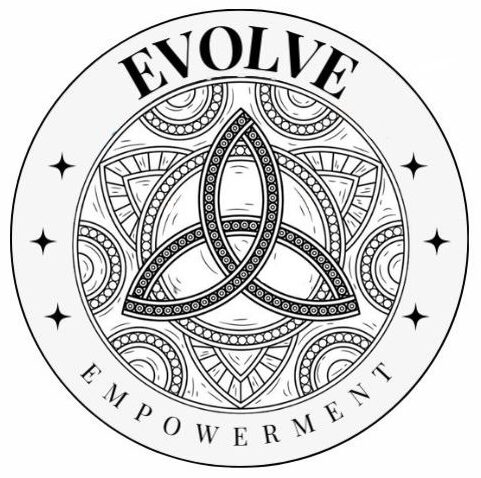There is an inner need that springs from deep within. A quiet fire that sits in the chest, nudging us toward a future that doesn’t yet exist but somehow already feels real.
This is vision—an inner cinema projecting what could be onto the blank screen of what is. For some, it’s vague at first, like morning fog. For others, it arrives as a sharp whisper:
“You were made for more.”
The Power of Vision and Goal-Setting on the Path to Success
In my own path, nothing meaningful began without vision. Not the hard choices, not the persistence, not even the first step. And yet, vision alone isn’t the map—it’s the destination on the horizon. The map?
That’s goal-setting. Specific, measurable, uncomfortable, sometimes ridiculous goals. I remember writing down one that felt like a joke at the time: “Make a full-time income online.” It didn’t make sense—until it slowly started to.
Research backs this up. A study from Dominican University in California showed that people who wrote down their goals were 42% more likely to achieve them. Clarity is power—and power moves mountains.
Consider visionaries like Chris Guillebeau, who visited every country in the world before turning thirty-five while building a loyal audience through honest storytelling and smart strategy.
Or take Lydia Sweatt, a freelance writer who turned her passion for words into a sustainable income stream through patient work and audience trust.
Their beginnings were modest. What set them apart was a focused vision and the quiet tenacity to keep moving toward it—especially when no one was watching. In a world where most drift, the ones who define and pursue are the ones who arrive.
Here you can find a very interesting text that will help you create and plan your goals.
Harnessing Consistency: Small Steps Towards Giant Leaps
Here’s the uncomfortable truth: success isn’t sexy. It’s not a highlight reel or a meteoric rise. It’s a thousand mornings getting up early when you’d rather stay in bed. It’s emails sent into the void, habits stacked like bricks, and the quiet compounding of effort in the shadows.
Consistency is not glamorous. But it is powerful. It’s what turns amateurs into professionals, dabblers into craftsmen. The science agrees—habit formation, as explored by researchers like James Clear and BJ Fogg, shows that small, repeated actions rewire the brain. Neural pathways deepen. Effort becomes rhythm.
And no, it doesn’t need to be perfect. In fact, consistency thrives in imperfection. A blog post written at 70% focus is still published. A short workout still strengthens the body. Perfection paralyzes—consistency liberates.
I’ve seen people build empires with nothing but stubbornness and a to-do list. If you’re looking for a starting point, you don’t need more talent. You need to show up tomorrow. And the day after.
If you’re serious about turning consistency into real-world success, tools like Wealthy Affiliate provide a structured path to build and grow an online business with clarity, mentorship, and method.

Strategic Planning: The Blueprint for Achieving Goals
Planning is what transforms chaos into clarity. It’s the difference between drifting and steering. When I first started creating quarterly plans, it felt rigid—like over-planning would kill my spontaneity. But in truth, planning gave me freedom. Freedom to rest. Freedom to pivot. Freedom to know where I was going without getting lost in every shiny distraction.
High performers don’t just react—they design. Tim Ferriss. Serena Williams. Marie Forleo. Their success is not accidental. It is calculated, refined, and executed over time.
Studies published in the Harvard Business Review have consistently shown that those who plan outperform those who don’t—not just by a small margin, but by orders of magnitude. It’s not about controlling the outcome. It’s about increasing the odds.
The right plan won’t make the work easier. But it will make it possible.
A strategic tool I’ve personally found useful is this productivity planner. It’s structured but not suffocating—a rare combo in a world of fluff and hustle.
Perseverance and Discipline: The Twin Pillars of Success
There’s a moment—always—that tests you. When things stop working, when effort meets silence, when nobody claps. It’s here that most people turn back. But perseverance? It’s the decision to stay. To write another page. To send another pitch. To breathe in the middle of a storm.
Discipline is its sibling. Less emotional, more mechanical. Discipline says, “Do it anyway.” And some days, that’s the only voice I’ve listened to. Because motivation is a spark, but discipline is the firewood.
I don’t pretend to have mastered it. I’ve failed. I’ve ghosted my own calendar. But I’ve also learned that falling off the track is not failure—staying off is. One more try is often the inflection point.
Psychologists like Angela Duckworth have shown that grit (a blend of perseverance and passion) predicts success more reliably than IQ, wealth, or even talent. That’s liberating, isn’t it?
If you’re struggling with maintaining direction, consider using this resilience-building tool. It’s helped many stay on track when the emotional winds are blowing hard.

What You Keep Doing Is Who You Become
Success is rarely explosive. It is quiet, repetitive, and often unseen. It is choosing the hard thing over the easy thrill, one decision at a time. It is building a ladder out of minutes and showing up when it matters—and especially when it doesn’t.
Vision gives you direction. Planning gives you structure. Consistency builds your momentum. And perseverance makes sure you finish the race.
If there’s one thing I’ve learned, it’s this: consistency isn’t just an act. It’s an identity. And when you wear it long enough, the world begins to believe you.
If you’re ready to take the first real step, begin here— Wealthy Affiliate could be the most consistent choice you’ve made this year.
FAQ.
What is the importance of having a vision?
A clear vision serves as your internal compass. It guides your choices and energizes your actions, helping you stay focused even during uncertain times.
How does goal-setting help with success?
Setting specific, actionable goals transforms vague dreams into tangible steps. It turns vision into a plan—and plans into progress.
Why is consistency more important than motivation?
Motivation is fleeting, but consistency builds momentum. By showing up daily, you train your mind and habits to support long-term success.
What role does planning play in achieving goals?
Planning keeps you aligned with your objectives. It helps you manage distractions, prioritize effectively, and measure your progress with clarity.
How can I stay disciplined when I lose motivation?
Discipline is a skill, not a feeling. Build routines, remove friction, and anchor your habits to a bigger purpose. Tools like this resilience program can offer structure and encouragement when you’re off track.
Is perseverance more important than talent?
Absolutely. Studies show that perseverance—especially in the face of setbacks—is a stronger predictor of success than raw ability.
Bibliography
- Duckworth, A. (2016). Grit: The Power of Passion and Perseverance.
- Clear, J. (2018). Atomic Habits.
- Matthews, G. (2015). Goal Setting and Personal Success: A Motivational Perspective.
- Gollwitzer, P. M. (1999). Implementation Intentions: Strong Effects of Simple Plans, American Psychologist.

Disclosure: This article may contain affiliate links. If you click on these links and make a purchase, I may earn a commission at no extra cost to you.

